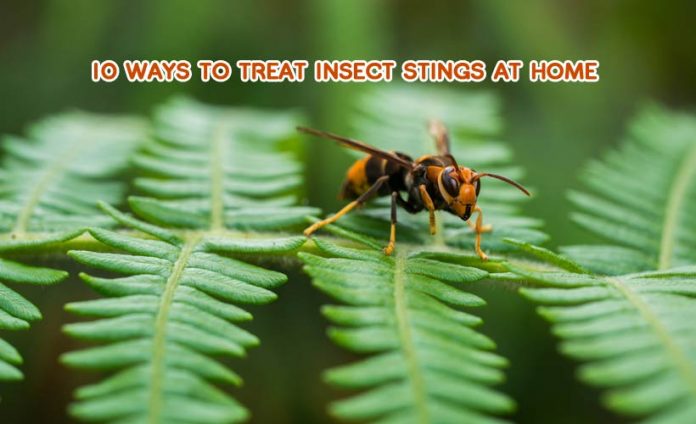A wasp sting can be very painful and cause much discomfort. One would like to take walk in warm weather during winters but wasp bites can cause one to worry about taking a leisure garden walk. The allergic reaction can be very severe. Bees and wasp and other insects can cause much concern as their bites are obnoxious.
To ease the pain and itching caused by wasp sting there are home remedies and one can treat the sting at home itself.
Table of Contents
Ice
Ice is useful in reducing swelling caused due to bee or wasp or a hornet sting. The cold temperature slows down the blood flow to the sting of the insect. One has to place an ice pack on the affected area. The ice can be wrapped in paper towel or a wrap.
Garlic
Garlic provides much pain relief for stings caused by insects. One can crush a clove of garlic and slather the content on the sting. One must ensure that the juices of the garlic are applied on the sting. Then one must place the plaster on the areas that are affected.
Onion
One has to cut an onion into a half and press it gently on the sting area. Keep doing so till the pain is reduced.
Cucumber
Cucumbers are usually used to treat wrinkles and can be used to rub on the sting in order to reduce the pain. It cools the area.
Baking Soda
Baking soda neutralizes the venom of a bee sting. One has to prepare a thick paste out of the baking soda and water and then apply to the sting area.
Salt
One has to prepare a thick paste of salt and apply it to the sting area. The salt has to be mixed with water This is useful for a bee sting.
Lemon Juice
To treat the wasp stings with lemon, slice a fresh lemon in half and squeeze out as much juice as one can. One must dab a cotton swab or even a cloth in the juice and then apply on the wasp sting. One can make use of bottled lemon juice.
Lemon
Slice up a fresh lemon into half and place one of the respective segments, flesh side down, on the sting caused by a wasp.
Apple Cider Vinegar
Soak up a small bit of cotton wool in apple cider vinegar and then place it on the wasp sting while applying a bit of pressure as well. The acidity of the vinegar does help to neutralize the wasp venom.
Hornet Stings
Hornet stings can be much more painful then wasp or bee stings. The sting of the giant Asian hornet can indeed be very painful deadly. Hornet venom is more dangerous as it contains a lot of acetylcholine which is rather a powerful pain stimulant.
It is but obvious that stings of insects can cause much discomfort and one can treat them by using remedies available at one’s home.

